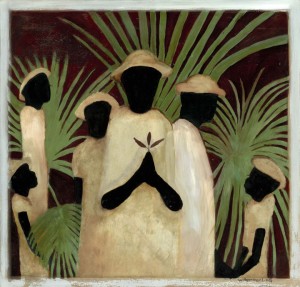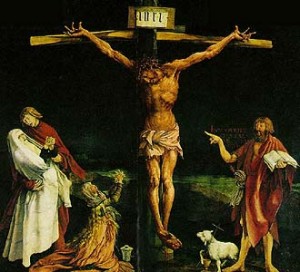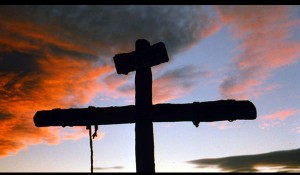Matthew 6:1-6, 16-21
Jesus stood on a mountain at the head of the Sea of Galilee and preached a sermon filled with wisdom and filled with love. He reached out to the multitudes who followed him and told them they were blessed. He assured them they were the salt of the earth and the light of the world. And, having offered words of love to these people – people who lived on the edges of society – he taught them how to live in love.
Follow the commandments that God gave to Moses, he said, but do more than that. Love everyone, enemy as well as friend, stranger as well as neighbor.
And then, Jesus cautioned the people:
To live a life of love, he said, is not to be ostentatious. Living in love, he said, is not about showing off. It’s about being faithful.
When you give alms, he said, when you pray – when you fast – when you do things that all faithful people are called to do – don’t do so in order to draw attention to yourselves. Don’t be ostentatious – don’t flaunt your faith simply in order to be seen by others.
For “your Father in secret who sees in secret” will see all that you do, and he “will reward you.”
Give alms quietly. Pray quietly. Fast quietly. Don’t be a show-off.
Because God knows everything you do.
So the question I have, on this Ash Wednesday in the year of our Lord 2012, is this: Exactly what are we doing here, about to have ashes put on our foreheads, so that we go forth marked for all the world to see our faith?
Isn’t this act we are about to undergo showing off our faith? And didn’t Jesus just tell us not to do that?
No matter how hard you look through the four Gospel accounts of the life of Jesus, you will not find one instance in which Jesus commanded his disciples, Put ashes on your foreheads on a certain day. Oh, you can find some references to using ashes for purification rite sin the Book of Numbers and in the Epistle to the Hebrews. But nowhere does Jesus tell his followers, You need to put ashes on your forehead so that everyone will know that you are going through a period of penitence, of praying and fasting, and of alms-giving.
* * *
It wasn’t until about the ninth century – nine hundred years after the death of Jesus – that the Church began using ashes to mark the beginning of Lent. The ashes were – and to this day remain – a symbol of mourning and penitence. The words that are said when the ashes are put on – “Remember that you are dust and to dust you shall return.” – remind us that we indeed are created beings who one day will die. We are reminded that we need to repent – to turn back to God – and to seek humility.
Are the ashes necessary? No.
Can we be penitent without them? Of course.
Can we become humble if we aren’t marked? Absolutely.
So I ask again: Exactly what are we doing here today, on this Ash Wednesday, about to have ashes put on our foreheads, so that we can go forth marked for all the world to see our faith?
* * *
In the plains of East Africa live a tribe called the Masai. They are a fierce people, these Masai: fiercely independent, fiercely warrior-like, fiercely nomadic. The Masai are known for these features and for one other thing: They believe that all cows under heaven have been given to them by God. That they are the stewards of all cows under heaven. It doesn’t matter where the cow lives – it could be anywhere. Even here. And it doesn’t matter who owns it – it could be you or me, or a member of one of the Masai’s neighboring tribes in East Africa. In fact, it could anyone. The fact is, in Masai belief, all cows under heaven belong to them. This belief even has been upheld in the courts throughout Kenya – Masai tribal law is more important, most of the time, than Kenyan national law.
Now the Masai – knowing that they have been given a special responsibility by God to care for all these cows – also know that they have to feed them. Which is a difficult thing to do, when you’re a nomadic tribe, wandering the plains of East Africa, competing with wildlife for sparse grass and pastureland.
So every year, in order to make sure they will have enough food for their cows in the coming year, the Masai carefully and intentionally set fire to the plains where their cows graze. Every year, right at the end of the dry season, the plains we know as the Serengeti and the Masai Mara are engulfed in flames.
The land that feeds their cows is covered in ash. Nothing survives there, except maybe some snakes and insects.
And then the Masai sit back and wait.
They wait for the long rains to come – rains that will pound the ash into the earth, that will turn the ash into fertilizer, nourishing the earth, so that the grass again will cover the plains, and their cows again will be able to eat.
It’s a risky thing to do – burning the Serengeti and the Masai Mara. If the rains come, all is well, the cows eat and the Masai are prosperous.
But if the rains don’t come – well, if the rains don’t come, the cows will starve – and so will the Masai.
But the Masai are willing to take that risk.
Because they know – they know – that out of death comes life.
Out of the ashes comes green grass, grass filled with nutrients, grass that will keep their cows alive, and in turn, keep them alive.
Out of death – comes life.
* * *
Today marks the beginning of Lent, the forty days of fasting, prayer and alms-giving; of self-examination and repentance; of reading and meditating on God’s holy Word.
And we begin that forty-day period by gathering together as a family of God. By praying. By listening to God’s holy Word. By celebrating the Eucharist.
And by marking our foreheads with ashes.
For us, as for the Masai of East Africa, we know that ashes mean death.
For us, as for the Masai, we know that out of that death comes life.
At the end of our forty days, we will be at death – the death of our Lord Jesus.
Three days later, we will encounter life anew – new life in the form of the risen Christ.
Out of Christ’s death comes our life.
We don’t mark our foreheads with ashes this day to show off in our faith.
We mark our foreheads with ashes because we know – just as the Masai know – that we can’t get to new life – to Easter – unless first we go through death – Good Friday.
We can’t get to resurrection without first stopping at the cross.
We mark our foreheads with ashes this day in order to begin the journey that will get us to that cross – that will get us to the death of our Lord and Savior.
Only then – only by encountering death up close and personally – can we then get to the new life offered us in Christ.
* * *
Go forth into this Lent, marked by the ashes of death.
Not to show off your faith.
But to get to the cross.
So that three days later, we can get beyond that cross.
To life.
Amen.
Sermon preached on Ash Wednesday at Good Shepherd, Blue Grass, Va., 22 February 2012, Year B.












